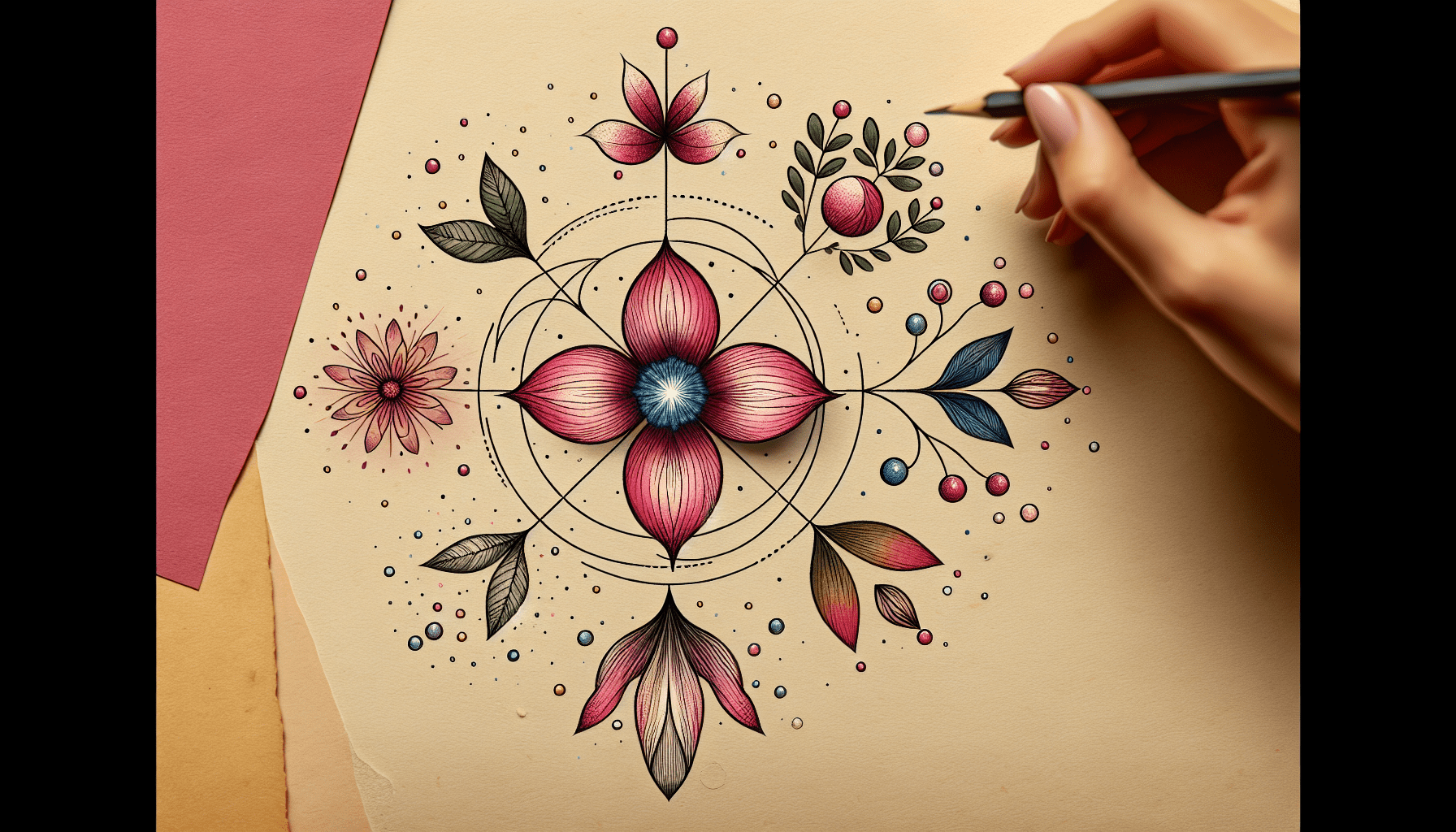In this article, you will discover simple yet powerful techniques to nurture self-love and acceptance. Exploring the importance of embracing your true self and practicing kindness towards yourself, you will uncover practical steps to cultivate a deep sense of love and acceptance within. By the end of this article, you will have the tools to embark on a journey towards greater self-compassion and inner harmony. So, let’s dive in and discover how to cultivate self-love and acceptance together!
Understanding Self-Love
Defining self-love
Self-love is a concept that is often misunderstood, but at its core, it is about having a deep and unconditional love and acceptance for oneself. It means recognizing and valuing your own worth, as well as prioritizing your own well-being and happiness. Self-love is not about being selfish or narcissistic, but rather about treating yourself with compassion, respect, and kindness.
Recognizing the importance of self-love
Self-love is crucial for leading a fulfilling and happy life. When you love yourself, you are more likely to make choices that align with your values and needs. It empowers you to set healthy boundaries, make decisions that are in your best interest, and pursue your passions and dreams. Without self-love, it can be difficult to find true happiness and fulfillment as you may constantly seek validation from external sources.
Dispelling misconceptions
There are some common misconceptions about self-love that need to be addressed. One common misconception is that self-love is selfish or narcissistic. However, self-love is not about putting oneself above others or disregarding their needs; it is about valuing and caring for yourself so that you can show up as the best version of yourself in all aspects of your life.
Another misconception is that self-love means being perfect or never making mistakes. In reality, self-love involves embracing your imperfections and understanding that making mistakes is a natural part of growth and learning. It is about forgiving yourself and showing kindness and understanding, even when you fall short.
Building Self-Awareness
Practicing mindfulness
Mindfulness is a powerful tool for developing self-awareness. It involves paying attention to the present moment, without judgment or attachment. By practicing mindfulness, you can become more attuned to your thoughts, emotions, and bodily sensations. This heightened awareness can help you understand yourself better and make conscious choices that align with your values and desires.
Reflecting on thoughts and emotions
Taking the time to reflect on your thoughts and emotions can greatly enhance self-awareness. Notice the patterns and recurring themes in your thoughts, as well as the emotions that arise in different situations. By understanding the root causes of your thoughts and emotions, you can gain insights into your behaviors and beliefs, allowing you to make positive changes.
Identifying strengths and weaknesses
Knowing your strengths and weaknesses is an important aspect of self-awareness. Take inventory of your strengths – the qualities and skills that come naturally to you and bring you joy. Celebrate and embrace these strengths as they are unique to you. Similarly, acknowledge your weaknesses without judgment, as they provide opportunities for growth and learning. By identifying your strengths and weaknesses, you can make informed choices and focus on personal development.
Embracing Imperfections
Letting go of perfectionism
Perfectionism can be a self-destructive pattern that hinders self-love and acceptance. Accept that no one is perfect and that striving for perfection is not only unrealistic but also exhausting. Embrace the idea that imperfections are what make you unique and human. Letting go of perfectionism allows you to foster self-compassion and treat yourself with kindness, even when things don’t go as planned.
Embracing mistakes as learning opportunities
Mistakes are an inevitable part of life, and instead of viewing them as failures, try to see them as valuable learning opportunities. Embracing mistakes allows for personal growth and development. When you approach mistakes with self-compassion and a growth mindset, you can see them as stepping stones towards success and becoming a better version of yourself.
Challenging negative self-talk
Negative self-talk can be detrimental to self-love and acceptance. Challenge your negative thoughts and replace them with positive and affirming ones. Instead of focusing on your flaws or perceived shortcomings, remind yourself of your strengths and accomplishments. Practice being your own cheerleader and speak to yourself with kindness and love. By challenging negative self-talk, you can cultivate a more positive and nurturing inner dialogue.
Developing Self-Compassion
Treating oneself with kindness
Self-compassion involves treating oneself with the same kindness and understanding that you would extend to a loved one. Practice self-care by engaging in activities that bring you joy and comfort. Be mindful of your inner dialogue and replace self-criticism with self-compassion. Treat yourself as you would a dear friend, offering yourself support and encouragement in challenging times.
Practicing self-compassion exercises
There are several exercises you can incorporate into your daily routine to cultivate self-compassion. One popular exercise is writing a letter to yourself, acknowledging your strengths and expressing love and appreciation for who you are. Another exercise is practicing self-compassion meditation, where you visualize sending kindness and compassion to yourself. These exercises can help you develop a deeper sense of self-love and acceptance.
Being forgiving towards oneself
Forgiving oneself is an essential aspect of self-love and acceptance. Everyone makes mistakes, and holding onto guilt and shame only hinders growth and self-compassion. Practice self-forgiveness by acknowledging your mistakes, taking responsibility for them, and making amends if necessary. Remember that forgiveness is a process and may take time, but by forgiving yourself, you can free yourself from the burden of past mistakes and embrace a more loving and accepting mindset.
Setting Boundaries
Recognizing personal limits
Setting boundaries is crucial for maintaining a healthy relationship with yourself and others. Take the time to identify your personal limits – the behaviors, situations, or people that drain your energy or compromise your well-being. By recognizing your limits, you can establish clear boundaries to protect your mental, emotional, and physical health.
Communicating needs effectively
Effectively communicating your needs is essential for developing self-love and acceptance. Practice assertiveness and express your needs and desires openly and honestly. Clearly communicate your boundaries and expectations to others, ensuring that your needs are respected and met. By communicating your needs effectively, you can foster healthier and more fulfilling relationships.
Saying ‘no’ when necessary
Saying ‘no’ is a powerful act of self-care and self-preservation. It is important to prioritize your well-being and not overextend yourself. Learn to say ‘no’ without guilt or apology when a situation or request does not align with your values or personal limits. Setting boundaries and saying ‘no’ when necessary allows you to conserve your energy and focus on what truly matters to you.
Practicing Self-Care
Prioritizing physical well-being
Self-care encompasses various aspects of life, and prioritizing your physical well-being is a fundamental part of self-love. Engaging in regular exercise, eating nourishing foods, and getting enough rest are essential for maintaining a healthy body and mind. Prioritize taking care of your physical health as it directly impacts your overall well-being and self-acceptance.
Nurturing emotional health
Emotional self-care is equally important as physical self-care. Take the time to check in with your emotions and nurture your emotional well-being. Engage in activities that help you relax, unwind, and recharge. This can include journaling, practicing meditation, seeking therapy or counseling, or engaging in hobbies that bring you joy. Prioritizing emotional self-care allows you to process and release emotions, fostering self-love and acceptance.
Taking time for hobbies and relaxation
In the midst of a busy life, it is important to carve out time for hobbies and relaxation. Engaging in activities that bring you joy and allow you to unwind is a vital part of self-love and acceptance. Whether it’s reading, painting, gardening, or enjoying a long bath, prioritize activities that recharge your spirit and bring you happiness. Taking time for hobbies and relaxation is an act of self-care that nurtures your well-being.

Engaging in Positive Affirmations
Creating a list of affirming statements
Positive affirmations are powerful tools for cultivating self-love and acceptance. Start by creating a list of affirming statements about yourself – qualities, strengths, and accomplishments that make you proud. Write them down and refer to them regularly, especially when you need a boost of self-confidence or a gentle reminder of your worth. Creating a list of affirming statements allows you to shift your focus towards self-love and acceptance.
Repeating affirmations daily
Repetition is key when it comes to positive affirmations. Take a moment each day to repeat your affirmations, either silently or aloud. Internalize the positive statements and allow them to become ingrained in your subconscious mind. Repeating affirmations daily reinforces self-love and acceptance, gradually transforming your mindset and beliefs about yourself.
Believing in the power of positive self-talk
Positive self-talk is a powerful tool for cultivating self-love and acceptance. Be mindful of your inner dialogue and replace negative or self-critical thoughts with positive and affirming ones. Believe in the power of your words and thoughts to shape your self-perception and overall well-being. By practicing positive self-talk, you can foster a more loving and accepting relationship with yourself.
Surrounding Yourself with Positive Influences
Choosing supportive relationships
The people you surround yourself with can greatly influence your self-love and acceptance. Choose relationships that are supportive, uplifting, and nurturing. Surround yourself with individuals who celebrate your successes, encourage your growth, and accept you for who you are. Cultivating positive relationships allows you to thrive and reinforces self-love and acceptance.
Eliminating toxic influences
Toxic relationships and influences can diminish self-love and acceptance. Identify toxic influences in your life and take steps to eliminate or minimize their impact. This may involve setting boundaries, ending friendships or relationships that no longer serve you, or creating distance from negative environments or media. By surrounding yourself with positive influences, you create a supportive and nurturing environment for self-love to flourish.
Seeking out uplifting media content
The media we consume has a significant impact on our self-perception and self-acceptance. Be mindful of the content you engage with and seek out media that uplifts and inspires you. Surround yourself with books, movies, podcasts, and social media accounts that promote positivity and self-love. By exposing yourself to uplifting content, you can nourish your mind and reinforce self-love and acceptance.
Practicing Gratitude
Expressing gratitude for oneself
Practicing gratitude for oneself is an important aspect of self-love and acceptance. Take the time to reflect on and appreciate your own qualities, accomplishments, and strengths. Write down the things you are grateful for about yourself and reflect on them regularly. By expressing gratitude for oneself, you cultivate a deeper sense of self-love and acceptance.
Keeping a gratitude journal
Keeping a gratitude journal is a powerful practice for fostering self-love and acceptance. Each day, write down three things you are grateful for about yourself. It can be as simple as acknowledging your own resilience, kindness, or unique talents. When you focus on the positives within yourself, you shift your mindset towards self-love and acceptance.
Focusing on the positives in life
In addition to practicing gratitude for oneself, it is important to focus on the positives in life overall. Cultivate an attitude of gratitude for the blessings, experiences, and relationships in your life. By shifting your focus towards the positives, you create a mindset of abundance and appreciation, which supports self-love and acceptance.
Seeking Professional Help
Recognizing when outside assistance is needed
There may be times when self-help strategies are not enough, and seeking professional help becomes necessary. Recognize when your struggles with self-love and acceptance are affecting your daily life, relationships, or overall well-being. It is okay to ask for help and reach out to a therapist or counselor who specializes in self-love and acceptance. Seeking professional help is a sign of strength and a proactive step towards cultivating a healthier relationship with yourself.
Consulting a therapist or counselor
A therapist or counselor can provide guidance, support, and tools for developing self-love and acceptance. Through therapy, you can explore the root causes of any self-esteem issues or negative self-beliefs and develop strategies for overcoming them. A trained professional can offer insights, perspective, and personalized techniques tailored to your specific needs. Consulting a therapist or counselor can be transformative on your journey towards self-love and acceptance.
Utilizing available resources for support
In addition to professional help, there are numerous resources available that can support your journey of self-love and acceptance. Books, online courses, workshops, and support groups focused on self-help and personal growth can provide valuable insights and tools. Utilize these resources to enhance your understanding, strengthen your self-love practices, and connect with others on a similar path.
In conclusion, cultivating self-love and acceptance is a lifelong journey that requires patience, compassion, and dedication. By defining self-love, recognizing its importance, and dispelling misconceptions, you lay the foundation for a healthier relationship with yourself. Building self-awareness, embracing imperfections, developing self-compassion, setting boundaries, practicing self-care, engaging in positive affirmations, surrounding yourself with positive influences, practicing gratitude, and seeking professional help are all essential steps along this journey. Remember, self-love is a continuous practice, and each step forward brings you closer to a deeper sense of self-acceptance, happiness, and fulfillment.







